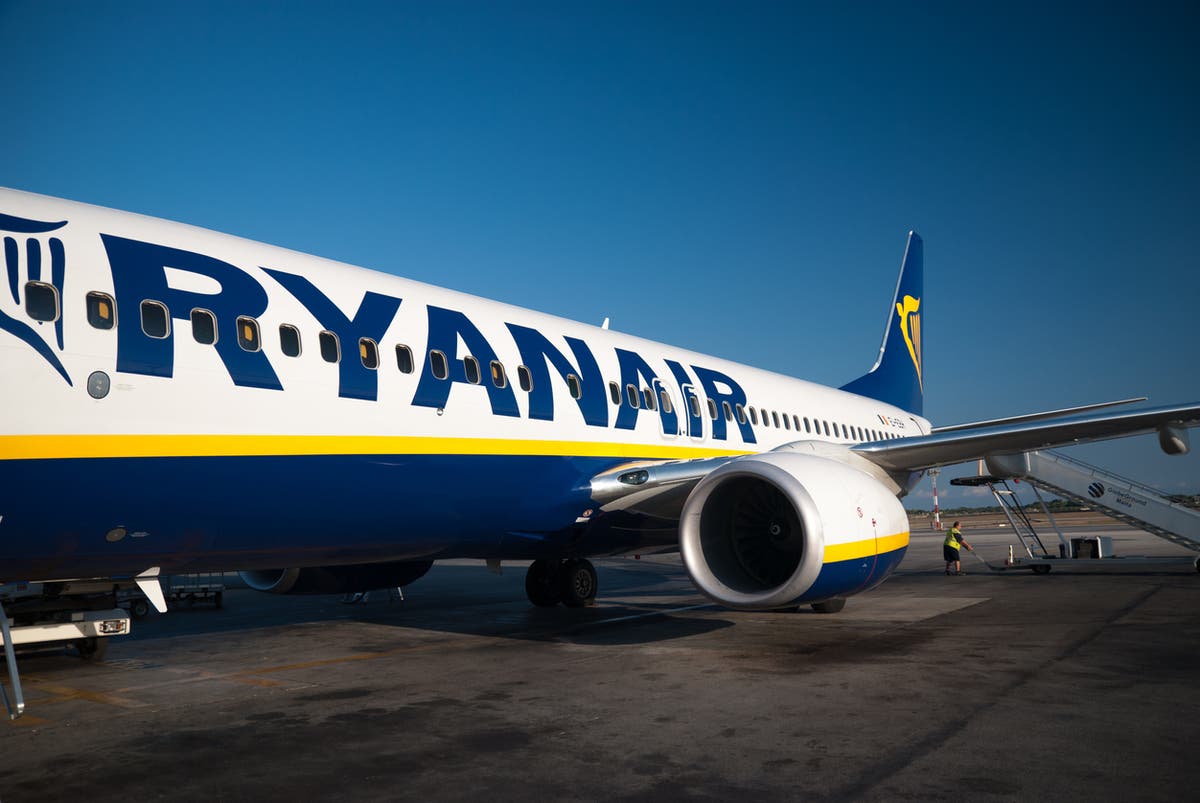Caught in the Luton airport car park fire nightmare? Your rights when flights go wrong
Airlines are not to blame for mass cancellations, but they are still obliged to provide care for passengers

Sign up to Simon Calder’s free travel email for expert advice and money-saving discounts
Get Simon Calder’s Travel email
Tens of thousands of passengers booked to travel to or from Luton airport have had their flights cancelled or delayed.
The Bedfordshire airport – which is the fifth-busiest in the UK – closed to arrivals and departures at 9pm on Tuesday 10 October after a serious fire broke out in a multi-storey car park near the passenger terminal.
Operations were suspended for 18 hours, during which more than 200 flights were cancelled – with others diverted to airports more than 100 miles away.
Here, The Independent’s travel correspondent Simon Calder explains what you can do if you are caught up in the chaos.
What are the rules that guide my rights?
European air passengers’ rights rules prevail for flights operated by UK or EU airlines, and all flights from UK/EU airports, including Luton.
The regulations, known as EC261, were introduced in 2006. They were devised to require airlines to do the right thing for their passengers. They specify the care and compensation you can expect when you are denied boarding despite showing up on time, or when your plane is delayed or cancelled.
My flight to or from Luton is cancelled. What can I expect?
Even though the airline is not responsible for the flight being grounded, it is obliged to provide replacement transport: the airline must get you to your destination as soon as possible if that is what you want.
The UK Civil Aviation Authority says that means that, if a flight is available on the original day of travel, the passenger must be booked on it – even if it is on a rival carrier.
You are entitled to “re-routing, under comparable transport conditions, to [your] final destination at the earliest opportunity”.
The term “re-routing” is unhelpful, since it implies finding a different route to the destination. On a link such as Luton-Malaga, with multiple airlines, there may be no need to change the route.
If you are flown to a different arrival airport, the airline must also meet reasonable onward travel costs. If you are flown to Gatwick rather than Luton, you could claim the £38 train fare but not a £150 taxi (unless you are in a party of four).
On occasion, a train (eg Eurostar from Amsterdam, Brussels or Paris to London) or even a rental car may be more appropriate.
You have two further options. The first is an alternative flight at a time to suit you in the future – though the cancelling airline can reasonably require you to travel on one of its services. The other is a full refund, including any return segment if it is on the same ticket.
The airline says it can’t deliver an alternative flight today – what happens next?
If the cancelling carrier does not carry out its duty, and instead you are obliged to make your own arrangements for a replacement flight and/or hotel and meals, then you can expect reasonable costs to be refunded.
That means booking the cheapest alternative ticket possible, staying in a budget hotel if there is one, etc.
You must keep all your receipts, of course. If the alternative travel is expensive (eg only business class is available) you will need to be able to show evidence of that, perhaps with screenshots.
I was persuaded to claim a refund for my cancelled flight. Where does that leave me?
Often in cases of serious disruption, airlines are eager to offer refunds – because it gets them off the hook. Typically, in my experience, they will say that their responsibility ends once you accept a refund, which is misguided. You cannot claim for rerouting on alternative transport, nor for accommodation and meals.
Legally that may be the case – but in the circumstances of the Luton fire I don’t believe airlines will be able to take that stance. If the airline did not offer replacement flights (on any carrier), or provide accommodation and meals, I imagine a good few passengers will have mistakenly asked for a refund.
I predict the airlines will be under pressure from ministers and the Civil Aviation Authority to take a “no-quibble” approach in cases where they did not provide the level of care that the law requires. So claim away – but the final settlement will have the amount refunded subtracted (eg if your costs are £500 but the airline has already refunded £100, you will only get £400 back).
My flight is supposed to be going on Thursday. Could it be cancelled?
Any flight can be cancelled – but you are well placed for flying as booked. The key airlines at Luton – easyJet, Ryanair and Wizz Air – are doing all they can to make sure they can operate full schedules to and from the airport from Thursday onwards. Having talked to airport and fire officials, it seems there will now be no safety or logistical reasons why that should not happen – though access will be constrained due to the fire-related work.
Anyone, like you, with a confirmed reservation for a Thursday is in a much stronger position than the tens of thousands of people whose Tuesday night/Wednesday flights were cancelled. They go to the back of the queue and must try to grab the few available seats on future flights.
My flight from Luton is heavily delayed. What are my entitlements?
Regardless of the cause, passengers are entitled to meals and, if necessary, accommodation until the flight departs.
The trigger point for care depends on the length of the journey.
Do I get cash compensation?
No. The Luton fire is regarded as an “extraordinary circumstance” and airlines are not liable. Travel insurance may offer some modest compensation.
If the airport, or the parking contractor, is found to have failed to act with reasonable care and skill, it is possible that some travellers who are out of pocket – for example due to loss of earnings – may be able to recover the cash from the firm.

 Kass
Kass 
























.jpg)






